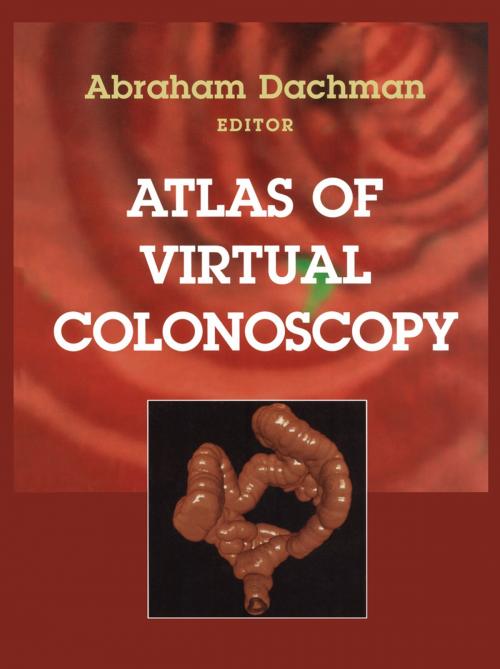Atlas of Virtual Colonoscopy
Nonfiction, Health & Well Being, Medical, Medical Science, Biochemistry, Specialties, Internal Medicine, Gastroenterology| Author: | ISBN: | 9780387215587 | |
| Publisher: | Springer New York | Publication: | March 19, 2013 |
| Imprint: | Springer | Language: | English |
| Author: | |
| ISBN: | 9780387215587 |
| Publisher: | Springer New York |
| Publication: | March 19, 2013 |
| Imprint: | Springer |
| Language: | English |
It is fitting that the first book to be published on the new subject of virtual colonoscopy takes the form of an atlas with an abundance of images. Radiolo gists approaching this exciting new technique for detecting colorectal neoplasms will rely on their traditional radiological knowledge gained from experience with several different tools, including computed tomography scanning, double contrast barium enema, computer image processing, and, of course, conventional colonoscopic findings. In many cases, the resulting blend of image information is entirely novel and radiologists will be faced with unfamiliar image artifacts as well as the problem of distinguishing stool from real lesions. This atlas will be of great value to those applying this new technique. In this volume, Abraham H. Dachman, MD, has persuaded most of the world's authorities pioneering virtual colonoscopy to contribute their cases as well as their insights. The material is effectively organized into a preliminary text sec tion of clinical and research issues followed by a well-illustrated, high-quality collection of case images. It is of interest to note that most of the 2D images re main in black-and-white format, whereas the 3D images are often presented in color largely because the 3D software applications are commercial products and therefore more creatively formatted to resemble the pink/orange tint of human colonic mucosa.
It is fitting that the first book to be published on the new subject of virtual colonoscopy takes the form of an atlas with an abundance of images. Radiolo gists approaching this exciting new technique for detecting colorectal neoplasms will rely on their traditional radiological knowledge gained from experience with several different tools, including computed tomography scanning, double contrast barium enema, computer image processing, and, of course, conventional colonoscopic findings. In many cases, the resulting blend of image information is entirely novel and radiologists will be faced with unfamiliar image artifacts as well as the problem of distinguishing stool from real lesions. This atlas will be of great value to those applying this new technique. In this volume, Abraham H. Dachman, MD, has persuaded most of the world's authorities pioneering virtual colonoscopy to contribute their cases as well as their insights. The material is effectively organized into a preliminary text sec tion of clinical and research issues followed by a well-illustrated, high-quality collection of case images. It is of interest to note that most of the 2D images re main in black-and-white format, whereas the 3D images are often presented in color largely because the 3D software applications are commercial products and therefore more creatively formatted to resemble the pink/orange tint of human colonic mucosa.















